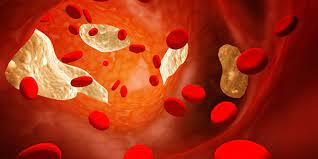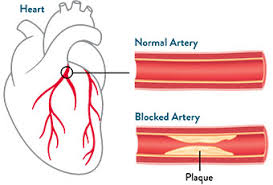Cholesterol regarded as the villain of a healthy life, is an important substance required for different functions in the body. But when the levels of cholesterol in the body become imbalanced it leads to potential health risks. In this blog, we will investigate what cholesterol is, the types of cholesterol, the effect of cholesterol issues on human health, and successful procedures for overseeing and controlling cholesterol levels.
Understanding Cholesterol:
 Cholesterol may be a waxy, fat-like substance found within the cells of the body and in a few food items. It plays an important role in building cell membranes, creating hormones (such as estrogen and testosterone), and synthesizing vitamin D. Cholesterol is transported through the blood circulation system by lipoproteins, which are particles made of fat and protein.
Cholesterol may be a waxy, fat-like substance found within the cells of the body and in a few food items. It plays an important role in building cell membranes, creating hormones (such as estrogen and testosterone), and synthesizing vitamin D. Cholesterol is transported through the blood circulation system by lipoproteins, which are particles made of fat and protein.
Types of Cholesterol:
There are two basic types of cholesterol:
Low-Density Lipoprotein (LDL) Cholesterol:
The low-density lipoprotein cholesterol which is generally considered to be bad, goes from the liver to the cells. When the bad cholesterol levels in the body increase it builds plaque in the arteries that can lead to heart stroke or any heart disease.
High-Density Lipoprotein (HDL) Cholesterol:
The high-density lipoprotein cholesterol also known as good cholesterol eliminates excess amounts of cholesterol from the body and transports it back to the liver. It is essential to have high amounts of good cholesterol to reduce the risk of having heart problems.
Cholesterol Levels:
| Cholesterol Ranges | DANGER | RISK | HEALTHY |
| TOTAL | >240 | 200-239 | Under 200 |
| LDL | 160 and above | 100-159 | Under 100 |
| HDL |
<40-Male <15- Female |
40-59: Male 50-59:Female |
60 and above |
Cholesterol Associated With Health Issues:
While there are many health problems associated with the imbalances of good and bad cholesterol. The risks associated are as follows:
Atherosclerosis:
When increased plaque is built within the arteries it can lead to atherosclerosis due to narrowed arteries restricting the blood flow and causing heart problems such as a heart attack or a heart stroke.
Coronary Artery Disease (CAD):
|
Atherosclerosis influences the coronary arteries, which supply oxygenated blood to the heart muscle, from supplying oxygenated blood resulting in coronary artery disease. |
Peripheral Artery Disease(PAD):
Atherosclerosis affects arteries outside of the heart, such as within the legs, reducing the blood flow and causing pain and numbness within certain body parts is known as peripheral artery disease.
Stroke:
The blood flow is blocked to the brain due to the plaque buildup or the plaque-filled component is burst leading to a brain stroke or any neurological problems.
Controlling Cholesterol Levels:
Managing cholesterol levels is fundamental for keeping up heart health and decreasing the risk of cardiovascular diseases. Let's look at a few safety measures to reduce cholesterol:
Having Balanced Diet:
Do follow a balanced diet with fresh fruits and vegetables and whole grains also include lean proteins such as fish, beans, and nuts. Try to avoid trans and saturated fats present in red meat, fat-containing dairy products, and fried and processed foods. Include healthy fats in your diet such as olive oil, avocados, nuts, and seeds(fax seeds & sunflower seeds) to lower the risk of bad cholesterol.
Weight management:
|
Weight management, by having a healthy weight you can eliminate the bad cholesterol present in your body and maintain your overall heart health. |
Regular Exercise:
Regular exercising can also help people reduce the plaque buildup in their arteries by increasing the good cholesterol.
Avoid Smoking & Alcohol:
Also do reduce alcohol consumption and smoking to reduce the cholesterol problems, because excessive alcohol can raise triglyceride levels and contribute to high cholesterol.
Medications:
In a few cases, lifestyle changes can not alone lower cholesterol so you need to take the medications as prescribed by the doctor such as statins, bile acid sequestrants, ezetimibe, and PCSK9 inhibitors that are best known to reduce the bad cholesterol levels in the body.
Conclusion:
Cholesterol is good(managing good heart health) and also bad (plaque buildup and heart problems). By understanding the risks and benefits associated with cholesterol, take the necessary steps to reduce the risk of heart problems associated with cholesterol.
Do visit a doctor if you have any additional queries and do follow a healthy diet recommended by a dietician to reduce the levels of bad cholesterol in the body.


